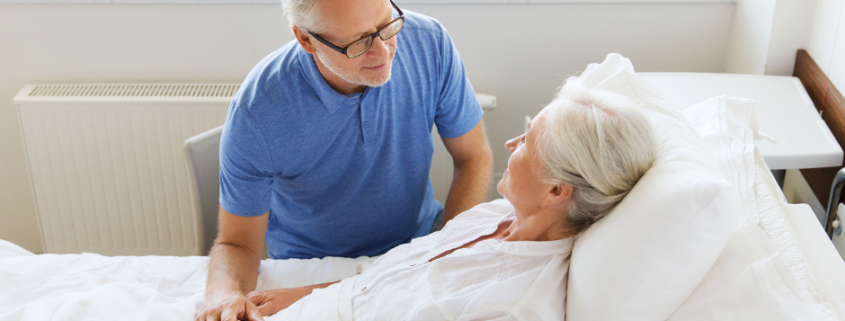Brain Injury Awareness for Older Adults
We often associate traumatic brain injuries (TBI) with youth sports or professional athletes. But did you know aging adults face a high risk of brain injury?
People aged 75 and older have the highest rates of TBI-related hospitalizations and death. The leading cause of TBI-related hospitalizations and deaths is falls. Falls are also the number one concern for adults as they age.
The risk increases as the rate of recovery is much slower for older adults, who are sometimes forced to stay in the hospital for long periods of time following an incident like a fall..
According to the Canadian Institute for Health Information, adults 60 years or older account for 29% of all head injury hospitalizations in the country. The rate of brain injury (both traumatic and non-traumatic) increases in older age groups, with the highest rate being in the range of 85 plus.
Because aging adults are at a higher risk of falling and acquiring a concussion, taking preventative measures must be considered.
Here are some tips for preventing TBI in older adults:
Create an exercise plan
Through light to moderate exercise plans, aging adults can improve their balance and mobility. Not only will it help them mentally in their overall confidence, but also physically by keeping their body active.
Whether it be a daily walk, yoga, or other light activity to keep their body moving, you will see the difference in how they move around.
Improving balance, flexibility, and overall strength will improve their mobility and help reduce the risk of falls. Also, ensuring that your loved one wears sensible shoes that are both comfortable and stable is very important!!
Review medicines with professionals
Medications are one of the most common causes of increased fall risk in aging adults. Both prescription and non-prescription medicines have side effects that are important to be aware of.
Make sure you are informed as to what medications your loved one may be taking as some medications may lead to falls. Medication-induced side effects such as lightheadedness, slowed reflexes, loss of balance, or drowsiness can all contribute to falling.
Depending on the type of medication taken – brain, blood pressure, blood sugar levels – it is important to note such medications may cause confusion and lightheadedness upon standing up. Be sure to understand the effects and keep your loved one informed on how to respond.
Make home as safe as possible
Many head injuries come from falls that could have been avoided. Ensuring your loved one lives in a safe space with tripping hazards minimized, can help prevent potential injuries.
Ensuring rooms have enough lights to avoid tripping, removing furniture hazards such as small rugs, and installing handrails or grab bars are great ways to assist your loved one when you are not there to help.
Taking proactive steps is an easy solution to limit the risk for your loved one. It will also give you peace of mind knowing you took the preventative steps necessary to minimize the risk of a fall.
Schedule yearly eye exams
Poor vision is linked to increased risk of falls as it impairs balance. As we age we are at risk of developing more eye-related conditions, such as cataracts, glaucoma, and other eye diseases.
Those with poor vision are more likely to experience falls as their depth perception, ability to recognize obstacles, and contrast sensitivity are all impacted.
Doctors suggest yearly eye exams for aging adults to ensure their prescription is up-to-date and any new eye-related conditions are monitored.
Utilize professional services
When it comes to caring for aging adults, it can be difficult to juggle so many responsibilities. Remember – you are not alone! There are many professional services ready to help prevent injury for your aging loved one.
Allowing your parents the ability to age in place is possible with services like ours. At iAccompany, our nursing professionals accompany your aging parent to, during, and from all appointments.
Our nursing professionals will give your loved one peace of mind by knowing they have a compassionate nurse by their side. It will also give you peace of mind to know they are not alone, and that they are in professional and capable hands.
Learn more about our service by visiting our about us page.

 Syda Productions on Canva
Syda Productions on Canva Syda Productions
Syda Productions
Leave a Reply
Want to join the discussion?Feel free to contribute!